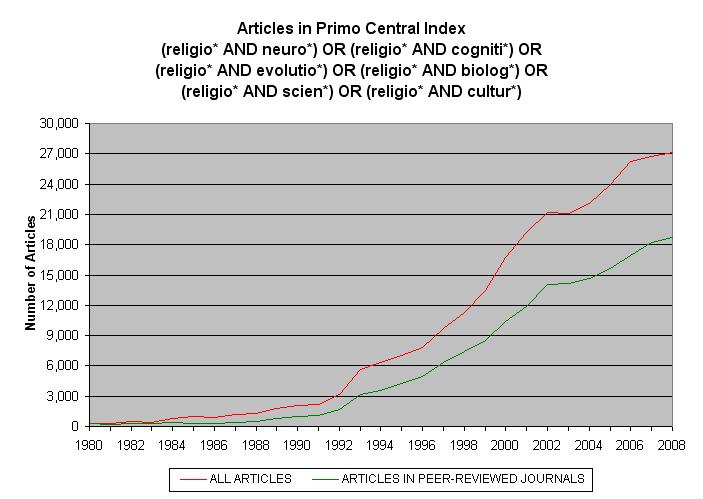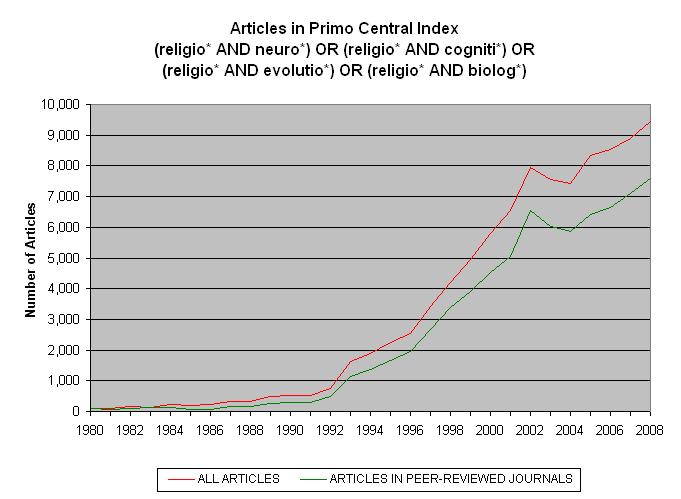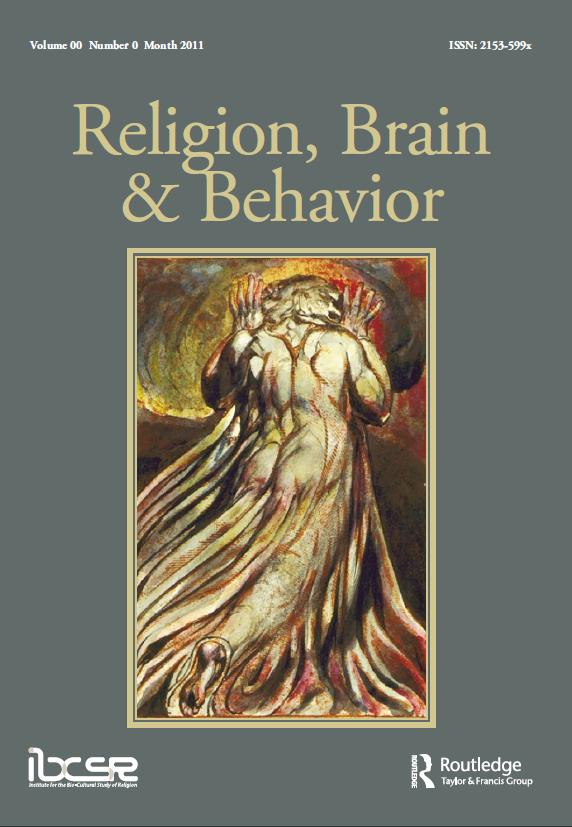Religion, Brain & Behavior has a CiteSchore of 3.5, which ranks #2 among 594 Religious Studies journals in SCOPUS.
Recommend the Journal to Your Library
How to Subscribe
Aims and Scope
Peer Review Policy
Editorial Staff
Book Reviews
Publisher
Editorial Advisory Board
Author Instructions
Background
Religion, Brain & Behavior's iconic image is William Blake's painting, "Web of Religion" (pictured on the journal cover, at right).
Recommend the Journal to Your Library
We have made it convenient for you to recommend that your local library purchase an RBB subscription. Just download the recommendation sheet, fill out the information, and give it to your librarian. The recommendation sheet is an editable pdf form, so you can fill it out using a computer and email it to your librarian, or else print it up and hand the sheet to your librarian. All you need to add is your name; the journal information is already provided.
How to Subscribe
An RBB subscription is included at a discounted rate with membership in the Institute for the Biocultural Study of Religion. IBCSR membership has other benefits as well, including subscription to a monthly research review and networking opportunities with other researchers interested in the scientific study of religion. Institutional and individual subscriptions to the journal are also available directly from Taylor & Francis. See here for further information on how to become a member.
Aims and Scope
The aim of Religion, Brain & Behavior (RBB) is to provide a vehicle for the advancement of current biological approaches to understanding religion at every level, from brain to behavior. RBB unites multiple disciplinary perspectives that share these interests. The journal seeks empirical and theoretical studies that reflect rigorous scientific standards and a sophisticated appreciation of the academic study of religion. RBB welcomes contributions from a wide array of biological and related disciplines, ranging from cognitive science and evolutionary psychology to and religious studies. RBB publishes high quality research articles, target articles with about ten solicited commentaries and an author response, case studies, and occasional review articles. Issues are published three times during 2011, and four times annually from 2012 onwards.
Peer Review Policy
All articles published in this journal have undergone a rigorous process of peer review.
Disclaimer: The Institute for the Biocultural Study of Religion (IBCSR) and Taylor & Francis make every effort to ensure the accuracy of all the information (the “Content”) contained in its publications, including through the most rigorous peer review. However, IBCSR and Taylor & Francis and its agents and licensors make no representations or warranties whatsoever as to the accuracy, completeness, or suitability for any purpose of the Content and disclaim all such representations and warranties whether express or implied to the maximum extent permitted by law. Any views expressed in this publication are the views of the authors and are not necessarily the views of the Editors, IBCSR, or Taylor & Francis.
Editorial Staff
Current Editorial Staff
Joseph Bulbulia (Editor), Reader, FHSS Religious Studies, Victoria University of Wellington, New Zealand - website
Uffe Schjoedt (Editor), Associate Professor, Department of the Study of Religion, Institute of Culture and Society, Arhus University, Denmark - website
Richard Sosis (Editor), Professor, Department of Anthropology, University of Connecticut, USA - website
Wesley J. Wildman (Editor), Professor, School of Theology and Graduate School of Arts and Sciences, Boston University, USA - website
Joel Daniels (Assistant Editor - Management), Postdoctoral Fellow, Institute for the Biocultural Study of Religion, Boston, USA
Christopher Kavanagh (Assistant Editor - Social Media), Postdoctoral Researcher, The Evolution Institute, University of Oxford, UK - website
Retired Members of the Editorial Staff
Patrick McNamara (Editor), Associate Professor, Department of Neurology, Boston University School of Medicine and VA New England Healthcare System - website
Michael L. Spezio (Editor), Associate Professor, Department of Psychology and Neuroscience, Scripps College, USA - website
James Haag (Editorial Assistant), Suffolk University
Ian Cooley (Editorial Assistant), Doctoral Fellow, Institute for the Biocultural Study of Religion
Founding Editors
Richard Sosis (Founding Editor), Professor, Department of Anthropology, University of Connecticut, USA - website
Patrick McNamara (Founding Editor), Associate Professor, Department of Neurology, Boston University School of Medicine and VA New England Healthcare System, USA - website
Wesley J. Wildman (Founding Editor), Professor, School of Theology and Graduate School of Arts and Sciences, Boston University, USA - website
Book Reviews
Publishers should send potential books for review to:
Dr. Wesley J. Wildman
Co-editor, Religion, Brain & Behavior
Center for Mind and Culture
566 Commonwealth Ave, Suite M-2
Boston, MA 02215
Publisher
Routledge Journals, Taylor & Francis Group - website
Editorial Advisory Board
Candace Alcorta - University of Connecticut
Nancy Ammerman - Boston University
Quentin Atkinson - University of Auckland
Scott Atran - University of Michigan
Jesse Bering - University of Otago
Justin Barrett - Fuller Theological Seminary
Paul Bloom - Yale University
Pascal Boyer - Washington University in St. Louis
Warren Brown - Fuller Theological Seminary
Philip Clayton - Claremont Graduate University
Adam B. Cohen - Arizona State University
Emma Cohen – University of Oxford
Lee Cronk - Rutgers University
Daniel Dennett - Tufts University
Robin Dunbar - University of Oxford
Robert Emmons - University of California, Davis
Ernst Fehr - University of Zurich
Daniel Fessler - University of California, Los Angeles
Armin Geertz - Aarhus University
William Scott Green - University of Miami
Joseph Henrich - Harvard University
William Irons - Northwestern University
Dominic Johnson - University of Oxford
Eric Kaufmann - University of London
Deborah Kelemen - Boston University
Lee Kirkpatrick - College of William and Mary
Pierre Liénard - University of Nevada, Las Vegas
Tanya Luhrmann - Stanford University
Mike McCullough - University of Miami
Ryan McKay - Royal Holloway, University of London
Andrew Newberg - Thomas Jefferson University
Ara Norenzayan - University of British Columbia
Kenneth Pargament - Bowling Green State University
Benjamin Purzycki - Max Planck Institute for Evolutionary Anthropology
Ilkka Pyysiäinen - University of Helsinki
Peter Richerson - University of California, Davis
Steven Schachter - Harvard University
Jeffrey Schloss - Westmont College
Todd Shackelford - Oakland University
John Shaver - University of Otago
Edward Slingerland - University of British Columbia
Michael Spezio - Scripps College, Claremont
Ann Taves - University of California, Santa Barbara
Robert Trivers - Rutgers University
Michiel van Elk - University of Amsterdam
Fraser Watts - Cambridge University
Claire White - University of California, Northridge
Harvey Whitehouse - University of Oxford
David Sloan Wilson - Binghamton University
Paul J. Zak - Claremont Graduate University
Author Instructions
RBB uses Taylor & Francis’s online submission system for managing submissions, peer review, and production. Authors should submit manuscripts at online submission site. Direct any questions to This email address is being protected from spambots. You need JavaScript enabled to view it..
Instructions for manuscript preparation:
- Authors should format articles using APA style, being sure to submit a version suitable for blind refereeing.
- Case studies and research articles are no longer than 6,000 words in length, including notes and references. Target articles and review articles are at maximum 10,000 words in length, including notes and references. Invited commentaries on target articles are at most 1,000 words in length, and author responses are 2,500 words.
- Use no more than two layers of headings. Use endnotes rather than footnotes.
- Include a clear and concise abstract of no more than 200 words, furnishing a summary of background, methods, results, and conclusions, in that order.
- Include 4-8 keywords or phrases that will help would-be readers find your article using web and database searches.
- Authors are responsible for obtaining permission to reproduce copyright material from other sources.
Background
Public and media interest in the scientific study of religion is picking up steam. Front page stories and bestselling books on the new evolutionary and neuroscientific studies of religion are now commonplace. People intuitively grasp that we need a deep understanding of religion if we are to understand ourselves. Religious beliefs and behaviors exert a profound impact on mental and physical health, dietary habits, mating preferences, and economic behavior. They sustain many lethal conflicts and help to heal many others. For billions of people, religious beliefs influence who they marry, how they rear children, who they spend time with, and how they comport themselves in daily life. Clearly, religion is central to understanding human life.
The upsurge in public interest in religion has been paralleled by comparable developments in academia. New graduate programs in the cognitive and biological study of religion have recently emerged (e.g., at Oxford University) and existing programs, such as at Queen’s University, Belfast, and Aarhus University in Denmark, are filled with creative and productive students. Aside from the many established programs (see examples here), clusters of faculty at the University of Michigan, the University of British Columbia, Washington University in St. Louis, the University of Connecticut, Boston University, and elsewhere are continuing to train the next generation of scholars studying religion from evolutionary, cognitive, and neurological perspectives.
The number of publications examining the cognitive and neurological bases of religious thought and behavior has steadily increased over the past few years. An articles search in Ex Libris's Primo Central consolidated index on May 24, 2011 for keywords (religio* AND (neuro* OR scien* OR cogniti* OR cultur* OR evolutio* OR biolog*)) yielded the following results by year.

A more refined search of the same database for academic journal articles having keywords (religio* AND (neuro* OR cogniti* OR evolutio* OR biolog*)) yielded results with a similarly spectacular growth trend, as follows.

In fact, the growth rate is even higher than these results suggest, because Academic OneFile indexes only two (Zygon and Journal for the Scientific Study of Religion) of the five major journals in which relevant academic articles are most often published.
Research, then, is moving at a fast pace. This research has been complemented by numerous biological, anthropological, and psychological studies exploring the evolutionary pressures that have shaped human religious behaviors, beliefs, and experiences. While most of this new work makes extensive use of evolutionary models, these studies are rooted in traditionally distinct disciplines and sub-disciplines. For this reason, the evolutionarily guided study of religion is developing along many independent tracks, and researchers are often unaware of the advances being made by scientists with similar interests who work outside their own discipline.
Most scholars in the field recognize the problem, and there have been a few recent attempts to rectify this situation. For example, the Evolution of Religion conference held in early 2007 brought leading evolutionary scholars, neuroscientists, and cognitive scientists studying religion together for a week of lectures, debate, and discussion. Subsequent conferences, such as at the Max Planck Institute and at meetings of the International Association of the Cognitive Science of Religion (IACSR), have sustained the momentum. Websites have been developed, such as the Evolutionary Religious Studies website at Binghamton University, to continue the interdisciplinary conversation that has emerged. There are well-funded new research programs, such as the wide-reaching Evolution of Religion: The Adaptive Logic of Religious Beliefs and Behavior. And the American Academy of Religion has initiated a new consultation on the Cognitive Science of Religion.
The biological study of religion has benefited from its interdisciplinary roots, but this diversity also poses its primary challenge. Research is currently published in too many journals in diverse fields making it nearly impossible for scholars to keep up with, and more importantly, to build upon each other’s work. Despite enormous interest and growth, the field will progress slowly without a journal devoted to publishing relevant groundbreaking research. The journal Religion, Brain & Behavior (RBB) will help to centralize current research in this area and thus form a greater sense of field identity and increase the efficiency of research.


